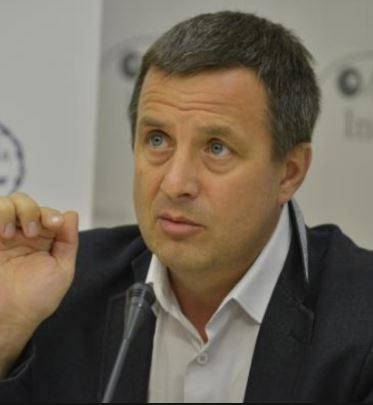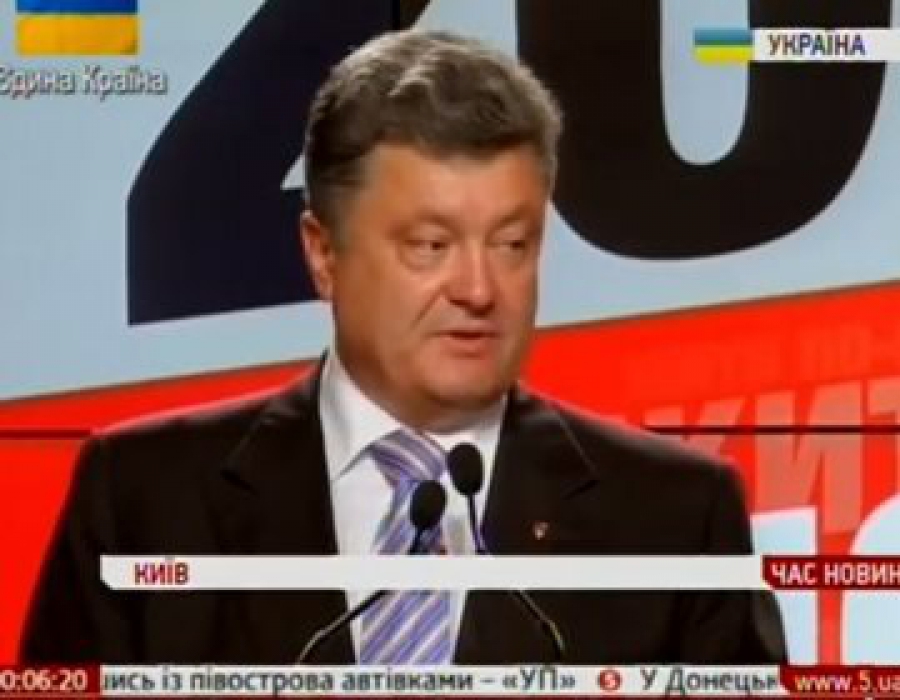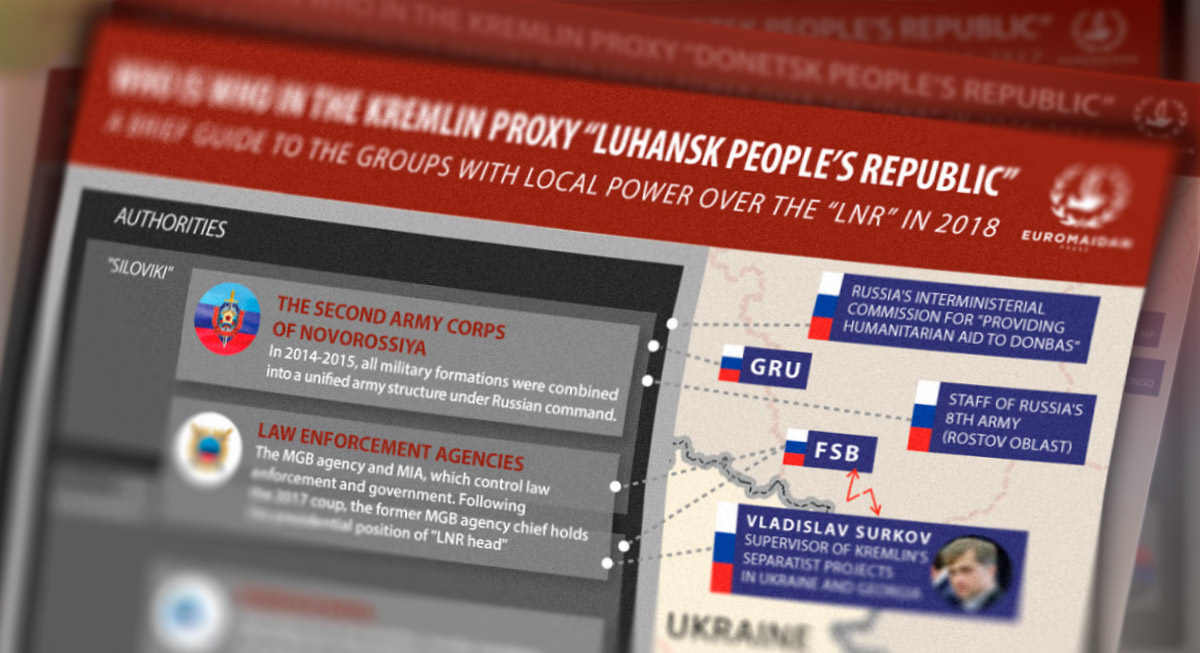Russia’s hybrid aggression unleashed against Ukraine has transitioned to a phase where Moscow seeks non-military means of 'resolving' the conflict on its own terms. This is in line with the Russian General Staff concept of hybrid warfare.
In early 2013, Valery Gerasimov, Chief of the General Staff of the Russian Armed Forces, presented a report called “New Challenges Demand Rethinking the Forms and Methods of Carrying out Combat Operations” at the Russian Academy of Military Science conference. Exactly a year later, the world saw Russia’s annexation of Crimea followed by the war in the Donbas.

After Russia’s occupation of Crimea and some of the Donbas areas, few people could still view Gerasimov’s chart as a sheer scientific coincidence. Having seen reduced military activity in the Donbas, Russian military and academic circles are discussing scenarios to move the aggression in eastern Ukraine into the 'resolving the conflict' phase.
Throughout the year, at closed-door conferences held at Russian military academies and round tables, military and political experts discussed Moscow’s ways out of the war foisted upon Kyiv and searched for acceptable scenarios for Ukraine. It’s not surprising that their outcomes are not made public, although open discussions also take place alongside the closed ones. Among them are such forums as “Current Issues of Security in Southern Russia,” “Measuring a Social and Political World: Russia-Ukraine-Novorossiya,” “War or Peace?” etc.
It’s become customary to invite former Ukrainian officials (e.g. Vitaliy Zakharchenko, Ukraine's Minister of Internal Affairs, and Mykola Azarov, Prime Minister of Ukraine) to these forums as consultants, who know well about the subtleties of Ukrainian politics, diplomacy, and economy. High-ranking Ukrainian oligarchs who fled the country are also used by Moscow as a serious information-political resource. In this way, the Russian government is trying to develop a new arsenal of non-military influence on Ukraine’s political situation - new “keys” for Ukraine, in other words.
Some Russian experts believe that these actions are aimed to violate the subjectivity of Ukraine’s development, consolidate domestic tensions, replace the ruling elites, and support the opposition leaders who are ready to be managed from the outside.
Among scholars who work on the application of managed chaos technologies are V.E. Lepskiy, V.V. Karyakin, A.A. Bartosh, S.A. Batchikov, and I.A. Vasilenko. In nearly all Russian theoretical writings on soft-power, Russian experts emphasize the development of external management forces in Ukraine.
When it became clear that Russia failed to defeat Ukraine in the hybrid war, it was decided to create a “manual” political resource among pro-Russian Ukrainians. In summer and fall 2014, Moscow began to emphasize a humanitarian aspect to resolving the conflict, and Russian services started organizing a Ukrainian humanitarian arsenal.
Among the formed organizations dealing with humanitarian issues in eastern Ukraine were the Committee of Public Support of Residents of south-eastern Ukraine initiated by the Russian Federation Council and the Refugee Union of Ukraine supported by the State Duma. There was also an attempt to create a pro-Russian political platform out of Ukrainian officials, mainly former members of the Party of Regions, through V. Oliynyk’s parliamentary group For Peace and Stability.
In the early stages of the Russian aggression in Ukraine, experts observed a surge in political activity among Ukrainian diaspora leaders in Russia. Bogdan Bezpalko, a leader of the Russian NGO the Federal Natural Cultural Autonomy “Ukrainians in Russia,” has become perhaps the most popular “Ukrainian” in the Russian media. He condemned the Ukrainian government, thus attuning the opinion of the Ukrainian diaspora to the opinion of the Russian government.
There is a growing number of skeptics among military experts who are inclined to view Ukraine’s Anti-Terrorist Operation only as a military threat. There is no denying that military activity with heavy weapons has recently escalated along the contact line. Therefore, it seems logical for military experts to talk about the beginning of a new phase of military operations in the Donbas. The increasing military and civilian casualties obviously compel experts to reach such a conclusion. However, one should look beyond that.
The Russian forces seek to achieve information objectives. The main task of the Russian leadership is to impose a protracted war on Ukraine, which over time would:
- exhaust Ukraine’s treasury;
- prevent the restoration of the economy;
- encourage the Ukrainians to accept admissibility of federalism;
- divide the Ukrainian society;
- create the myth of the invincibility of the Russian army;
- fuel public distrust in Ukraine’s military-political leadership;
- reduce people’s patriotism.
Each of these points doesn’t apply to military victories. Instead, the Russian government is pushing Ukraine to non-military (information, political, and economic) defeats. The Kremlin ultimately seeks Kyiv to accept peace on Russia’s terms.
By implementing technologies of managed chaos, Russia is searching for the right keys to establish control over Ukraine.
The replacement of the key elite players with 'managed' candidates is viewed as the principal pillar of its strategy. The NGOs of Ukrainians and political centers in Russia supported by Russian intelligence services are already preparing candidates.
Their task is to create a wave of managed chaos, which would lead to the collapse of the system with no need for further military escalation. Moreover, as a catalyst for managed chaos, Russian subversion efforts are focused on domestic socio-economic and ethnic tensions in Ukraine, pervasive corruption ties, income inequality, and a lack of social guarantees. Unfortunately, Ukraine has long ignored this series of tensions, reinforcing public distrust in the government.






